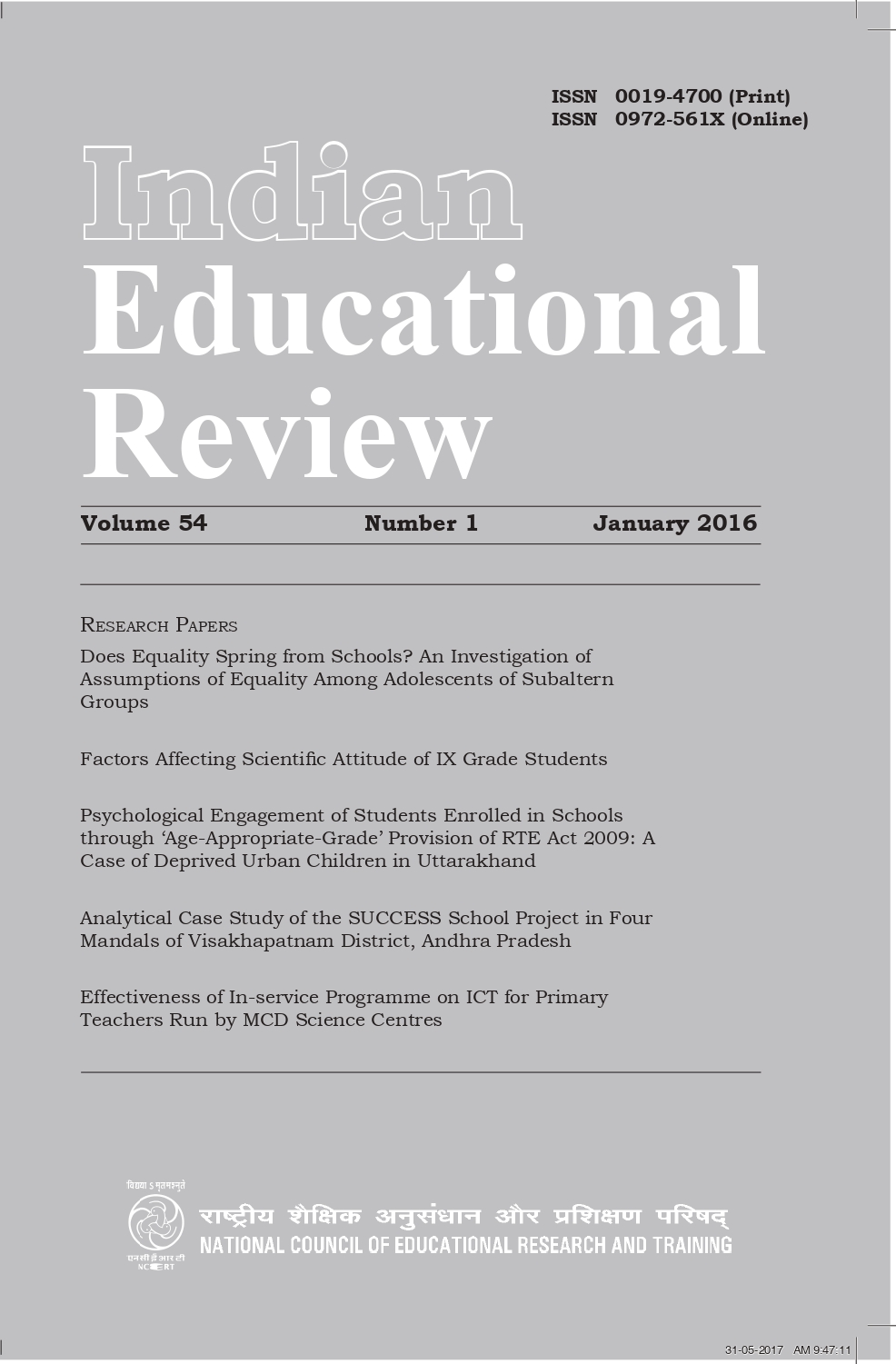Adoption of RTE in Private Schools of Rural Punjab
Published 2016-01-31
Keywords
- Right to Education Act 2009,
- Elementary Education
How to Cite
Abstract
Education leads to individual freedom and empowerment, which yields significant societal development gains and makes an individual self-reliant. It is seen as the foundation of society, enabling economic wealth, social prosperity and political stability. Elementary education forms the foundation for all levels of learning and development. It empowers and equips individuals with analytical capabilities, instils confidence and fortifies them with determination to achieve goal-setting competencies. It, therefore, plays a pivotal role in improving the socio-economic condition of the nation. Cognizant of its duty to ensure that no individual is denied of this fundamental right to receive education, Government of India enacted the Right to Education Act 2009 which is regarded as landmark legislation. The Right of Children to Free and Compulsory Education (RTE) Act 2009 stipulates that private schools reserve 25 per cent of seats at the entry level for children belonging to ‘disadvantaged groups’ and ‘weaker sections’. The Central Act originally defined a ‘child belonging to a disadvantaged group’ as one belonging to a Scheduled Caste, Scheduled Tribe, socially and educationally backward class or such other group facing disadvantage owing to social, cultural, economic, geographical, linguistic, gender or other similar factors. This study is an attempt to explore the role of the private sector (schools) that can play an important role in the implementation of RTE.

